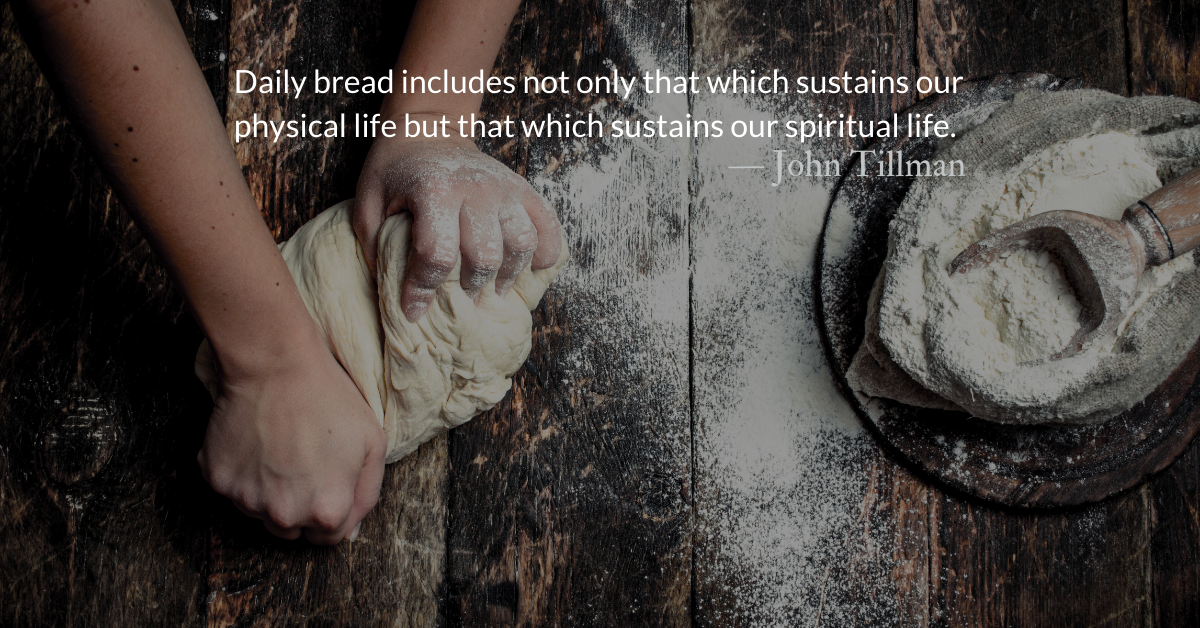Scripture Focus: Luke 11.5-8, 11-13
5 Then Jesus said to them, “Suppose you have a friend, and you go to him at midnight and say, ‘Friend, lend me three loaves of bread; 6 a friend of mine on a journey has come to me, and I have no food to offer him.’ 7 And suppose the one inside answers, ‘Don’t bother me. The door is already locked, and my children and I are in bed. I can’t get up and give you anything.’ 8 I tell you, even though he will not get up and give you the bread because of friendship, yet because of your shameless audacity he will surely get up and give you as much as you need.
11 “Which of you fathers, if your son asks for a fish, will give him a snake instead? 12 Or if he asks for an egg, will give him a scorpion? 13 If you then, though you are evil, know how to give good gifts to your children, how much more will your Father in heaven give the Holy Spirit to those who ask him!”
Reflection: Reluctant and Evil Givers
By John Tillman
Jesus often highlights reluctant or evil givers when teaching about prayer.
The unjust judge (Luke 18.1-8) doesn’t care about God or humanity. He is not motivated to establish justice or righteousness as we hope our judges would be. Instead, only the widow’s relentless pestering finally gets him to rule in her favor and, even then, only because he fears she will resort to violence.
Today’s passage gives the example of a friend and neighbor. The friend would presumably help his neighbor in normal circumstances, but the request is inconveniently timed. He and his family are already in bed. He’s tired. It’s late. He doesn’t even want to get out of bed, much less come to the door. And he certainly doesn’t want to rummage in the dark for the food his neighbor requests.
Jesus also theorized about an evil giver, a father who, instead of giving something good to his children, gives something awful. Jesus says that even though his listeners are evil, they still give good gifts to their beloved children. But the evil giver offers a snake instead of a fish or a scorpion instead of an egg. He gives harm instead of health or help.
Jesus acknowledges that our experience of the world includes evil and injustice. He knew very well, and so do we, that sometimes fathers, mothers, or authority figures give harmful things to those in their care. The evil giver in Jesus’ parable is theoretical. However, sexual and spiritual abuse survivors have directly experienced this kind of evil.
These negative examples provide contrast to God’s generous nature. God is not a reluctant giver, an evil giver, or one who gives only when it is convenient for himself. When we come to God in prayer, we come to a good father who rejoices to supply our needs and never rebuffs our requests.
When we wait or do not get what we ask for, we can shamelessly keep asking in faith, knowing that God has what is best for us in mind. To paraphrase Tim Keller, if we knew what God knows about what is best for us, that’s all we’d ever ask for. The Holy Spirit’s intercession makes up this gap on our behalf.
And when we suffer from evil in any form, Christ not only suffers with us but promises that all evil will be turned to serve a good purpose or utterly destroyed.
Divine Hours Prayer: The Refrain for the Morning Lessons
Then shall all the trees of the wood shout for joy before the Lord when he comes, when he comes to judge the earth. — Psalm 96.12
– From The Divine Hours: Prayers for Summertime by Phyllis Tickle.
Today’s Readings
Zechariah 2 (Listen 1:41)
Luke 11 (Listen 7:33)
Read more about Equally Skilled Hands
The good shepherd will defend his flock and put an end to evil, crushing sin like a snake underfoot.
Apply or tell a student!
Spots are almost full! #Write with us for #StudentWritersMonth. Get #FreeCoaching, seminars by special guests, published work, and a scholarship/stipend.










